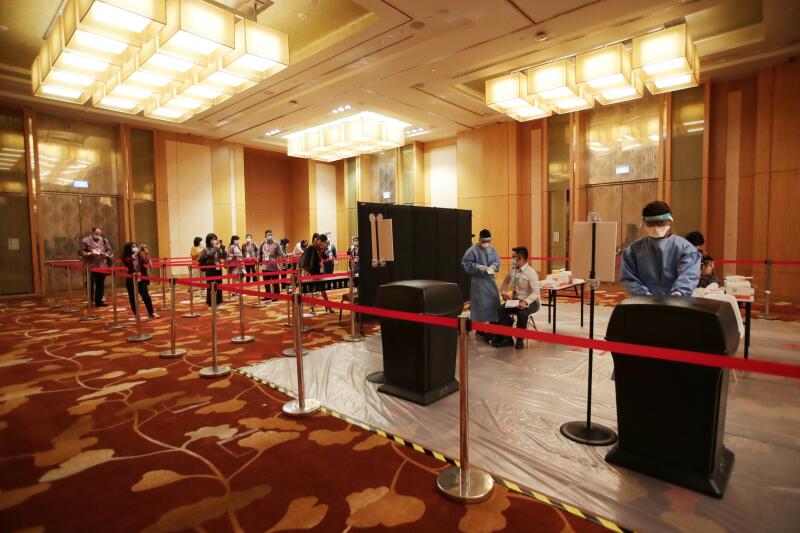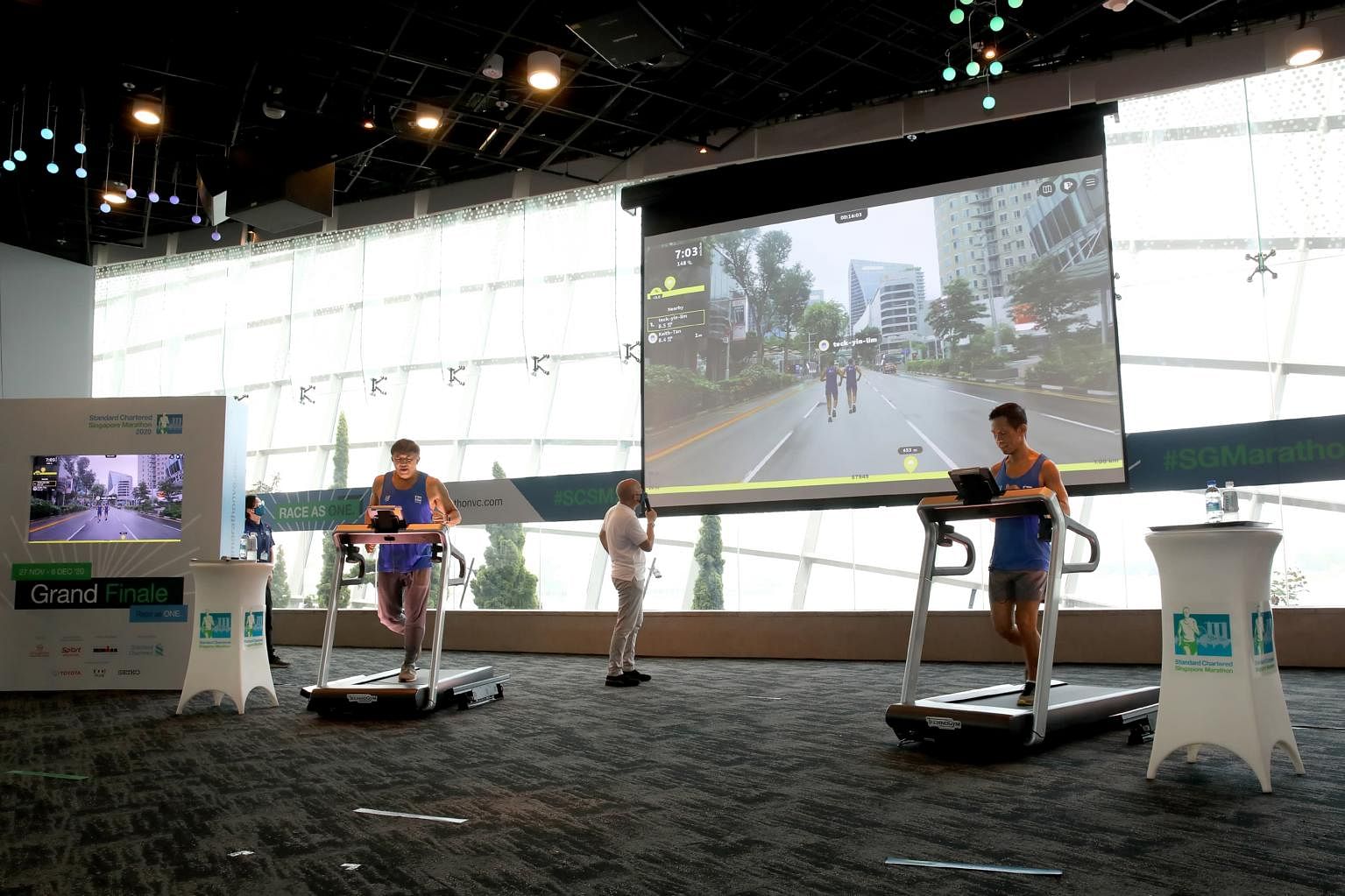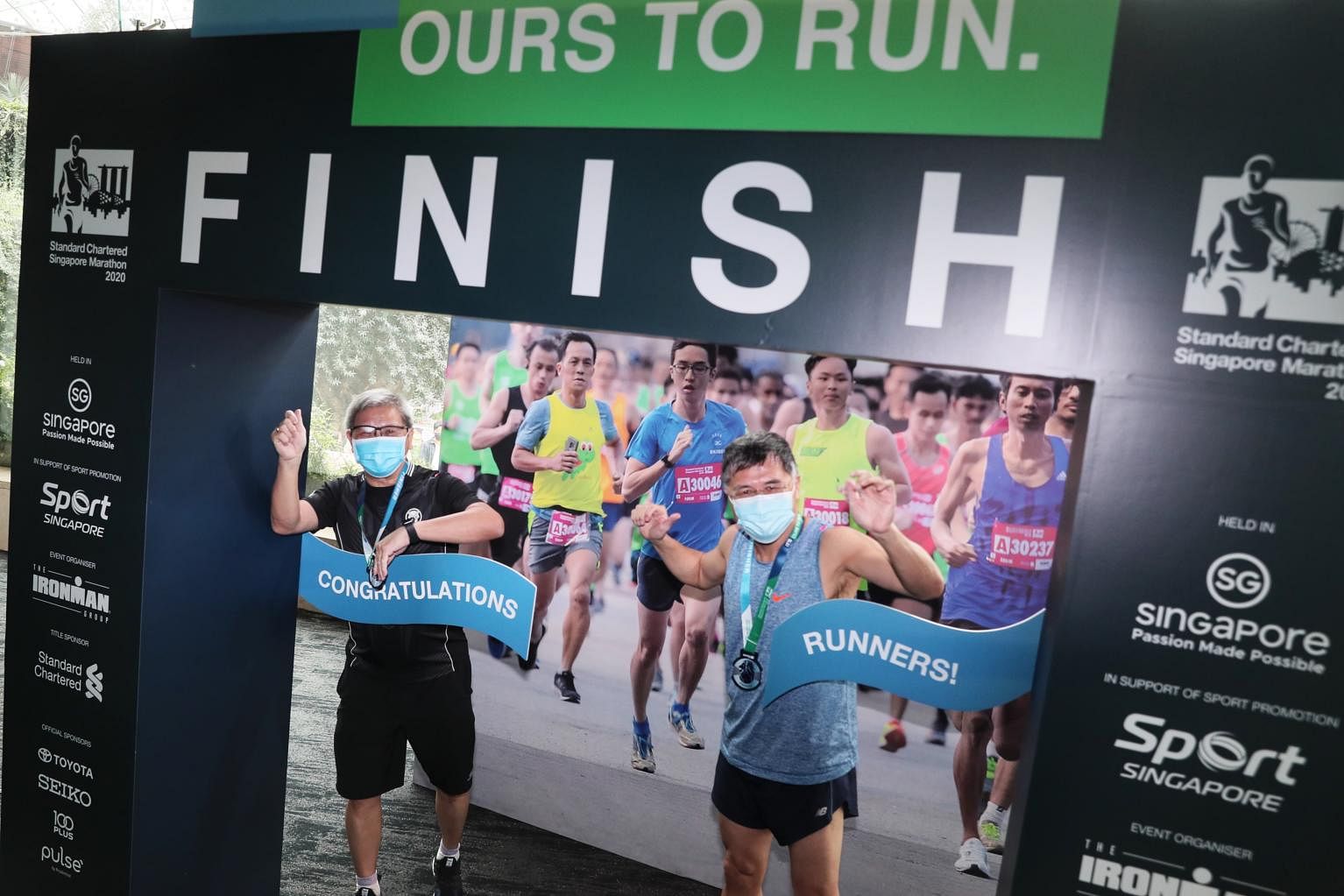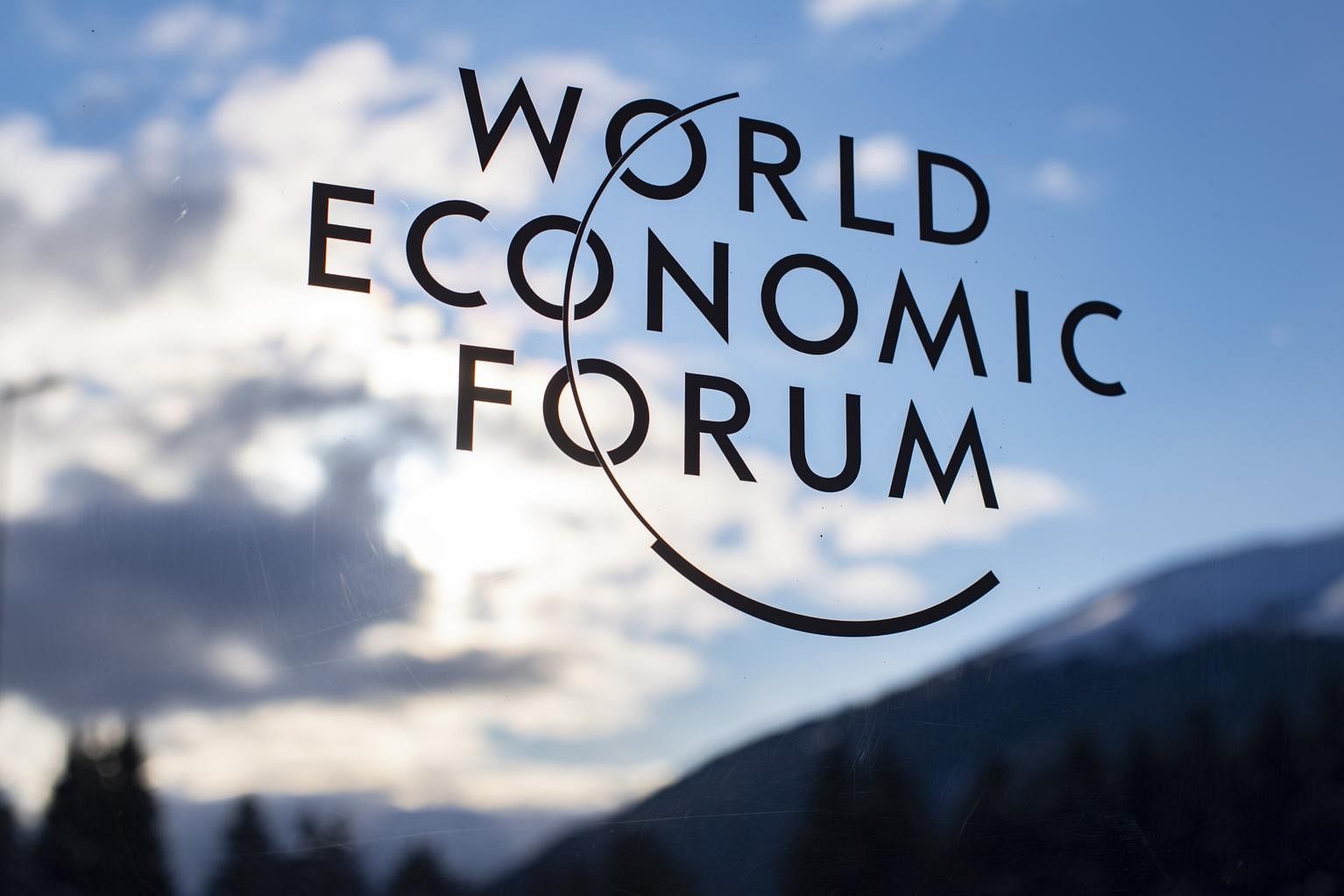20 words & phrases that defined 2020: Hybrid
2020 has been a year of upheaval and crisis – one that was shaped by the coronavirus pandemic. It also saw significant developments, such as a general election in Singapore and the United States electing its next leader. In this 12-day series, The Straits Times spotlights 20 words or phrases that defined 2020.
Sign up now: Get the biggest sports news in your inbox

People queueing to take a Covid-19 test before attending TravelRevive, a two-day travel event at the Sands Expo and Convention Centre late last month.
ST PHOTO: GIN TAY
With the coronavirus pandemic making large-scale events impossible, organisers have had to find ways to stage conferences and sporting events while abiding by safe distancing measures.
Enter hybrid events, which allow a mix of virtual participants and some who are physically present at the event venue.
This new approach has become increasingly popular in the new normal, and Singapore has been quick to embrace the mixed format as a way to keep its battered meetings, incentives, conventions and exhibitions (Mice) sector going amid the pandemic.
The pandemic resulted in the cancellation of several major events, including this year's Singapore Airlines Singapore Grand Prix.
Apart from disappointed Formula One fans, attendees of the All That Matters conference - which gathers the most influential players in the global sport and entertainment industry, and is held annually in the build-up to the night race - were also left frustrated as the business forum at The Ritz-Carlton, Millenia Singapore could not proceed in its usual manner.
Due to Covid-19, tens of thousands of fans can no longer gather to share the emotion of live sport.
Mice events that brought together industry leaders and experts now do not have the licence to move freely across borders.
But adversity is also fertile ground for innovation.
Both sectors have taken steps to evolve into hybrids. As Minister for Culture, Community and Youth Edwin Tong recently described it, event organisers are leveraging technology to deliver "a more engaging and interactive experience within safety guidelines" for consumers.
The Standard Chartered Singapore Marathon, which in the past welcomed about 50,000 runners, is one such example.
Instead of cancelling this year's edition - as organisers of the Berlin and Tokyo Marathon had done - the race's organisers incorporated a virtual race and featured augmented reality for the first time, drawing more than 12,000 entrants, with about 37 per cent of them hailing from overseas.


Local event management company Orange Room organised several virtual events. Its managing director Elvin Ting noted that the merging of the online and offline space will be the new normal for mass sports events till the pandemic is over.
The Government, through national agency Sport Singapore, launched the "Blended" initiative in October, with $5 million set aside for event organisers, event management companies, private academies and clubs to engage Singaporeans via "phygital" hybrid events.
This is part of the $50 million Sports Resilience Package to boost the domestic ecosystem.
Another priority for the Government is to safeguard the Mice industry, which supports more than 34,000 jobs with an economic value-add of $3.8 billion, or nearly 1 per cent of the country's gross domestic product, noted a Singapore Tourism Board-commissioned report last year.
The Mice sector is one of seven areas which industry-led coalition groups, convened by the Emerging Stronger Taskforce, are studying.
The Alliance for Action team, tasked with bringing back travellers, aims to re-establish Singapore as a leading Mice destination and maintain the country's position as one of the top 10 cities in the world by international visitor traffic.
Trade and Industry Minister Chan Chun Sing said last month that Singapore is "not going to play defensive by just trying to get back to where we were" in the Mice space. It can gain a competitive advantage if it can ensure the health security of international visitors in a faster and better way, he added.
Last month's TravelRevive, a two-day travel event at the Sands Expo and Convention Centre, was the first trade show here to pilot new safety measures under the newly developed hybrid event trade show prototype for safe business events, safe itineraries and digital enabler tools.
It is intended to pave the way for more international trade shows to be held here in the first quarter of next year.
Recognition of Singapore's handling of the Covid-19 pandemic was evident earlier this month when the Republic was selected to host the World Economic Forum's annual meeting in May next year, in place of the usual venue, Switzerland.

The forum will, for the first time, include a virtual component to allow greater participation amid the pandemic.
Industry players agreed that the decision was a major endorsement of Singapore's capabilities as a leading global Mice hub, and would hopefully lead to more job and business opportunities.
One might say the new year brings a unique hybrid of challenges and opportunities.


